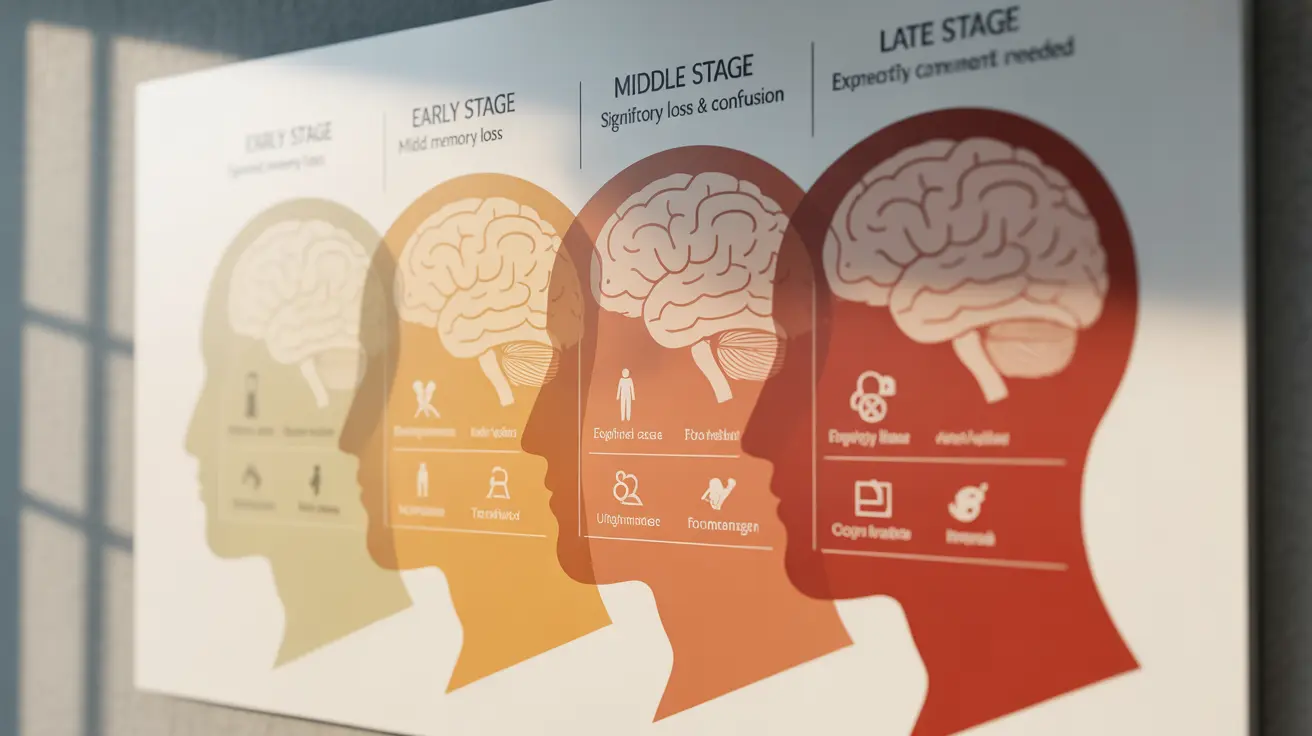Dementia is a complex neurological condition that affects millions of people worldwide, impacting cognitive function, memory, and daily living abilities. While often associated with aging, dementia is not a normal part of getting older, but rather a collection of symptoms that can significantly affect a person's quality of life and independence.
Understanding dementia is crucial for early detection, proper management, and providing appropriate support for those affected. This comprehensive guide explores the key aspects of dementia, from initial symptoms to diagnosis, progression, and available support options.
Early Signs and Symptoms of Dementia
Recognizing the early signs of dementia is essential for timely intervention and support. Common early indicators include:
- Memory loss affecting daily activities
- Difficulty with planning and problem-solving
- Challenges in completing familiar tasks
- Confusion with time or place
- Problems with language and communication
- Poor judgment and decision-making
- Changes in mood and personality
Unlike normal aging, where occasional forgetfulness might occur, dementia symptoms progressively worsen and significantly impact daily functioning.
Diagnosis and Assessment Process
Diagnosing dementia involves a comprehensive evaluation process that typically includes:
Medical History Review
Doctors will carefully examine personal and family medical history, current symptoms, and any medications being taken.
Cognitive Testing
Various tests assess memory, problem-solving abilities, attention span, and language skills. Common assessments include the Mini-Mental State Examination (MMSE) and Montreal Cognitive Assessment (MoCA).
Physical Examination and Laboratory Tests
Blood tests, brain imaging (MRI or CT scan), and other medical evaluations help rule out other conditions and determine the type of dementia present.
Stages of Dementia Progression
Dementia typically progresses through several stages, each presenting unique challenges:
Early Stage
Mild memory loss and cognitive changes begin to affect daily life, but independence is largely maintained.
Middle Stage
More significant memory loss occurs, along with increased confusion and greater need for assistance with daily activities.
Late Stage
Extensive care is required as cognitive and physical abilities decline significantly.
Treatment and Management Approaches
While there is no cure for dementia, various approaches can help manage symptoms and improve quality of life:
Medications
Certain medications can help manage cognitive symptoms and behavioral changes associated with dementia.
Lifestyle Modifications
Regular exercise, proper nutrition, social engagement, and cognitive stimulation can help maintain function and slow progression.
Environmental Adaptations
Making living spaces safer and more navigable can help maintain independence longer.
Caregiving and Support Services
Supporting someone with dementia requires a comprehensive approach:
- Professional care services
- Family caregiver support groups
- Adult day care centers
- Respite care options
- Home health care assistance
Frequently Asked Questions
What are the primary symptoms and signs of dementia, and how does it differ from normal aging? The primary symptoms of dementia include progressive memory loss, difficulty with reasoning and judgment, communication problems, and changes in behavior. Unlike normal aging, where occasional forgetfulness occurs, dementia symptoms significantly impact daily functioning and worsen over time.
How is dementia diagnosed, and what tests are typically involved? Dementia diagnosis involves comprehensive medical history review, cognitive testing (such as MMSE and MoCA), physical examinations, laboratory tests, and brain imaging studies. This thorough evaluation helps determine the type and severity of dementia.
What are the different stages of dementia progression, and how does it affect daily life? Dementia progresses through early, middle, and late stages. Early stages involve mild memory loss and cognitive changes, middle stages show increased confusion and need for assistance, and late stages require extensive care due to significant cognitive and physical decline.
Are there any proven lifestyle changes or treatments that can slow the progression of dementia? While there's no cure, regular exercise, proper nutrition, social engagement, cognitive stimulation, and appropriate medications can help manage symptoms and potentially slow progression. Environmental adaptations can also support independence.
What options are available for caregiving and support for individuals living with dementia? Available support options include professional care services, family caregiver support groups, adult day care centers, respite care, and home health care assistance. These services can be tailored to meet individual needs and circumstances.




